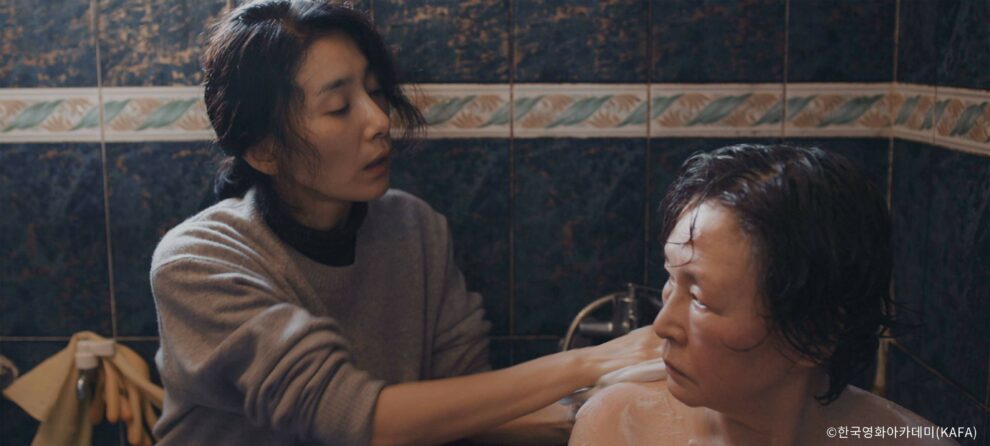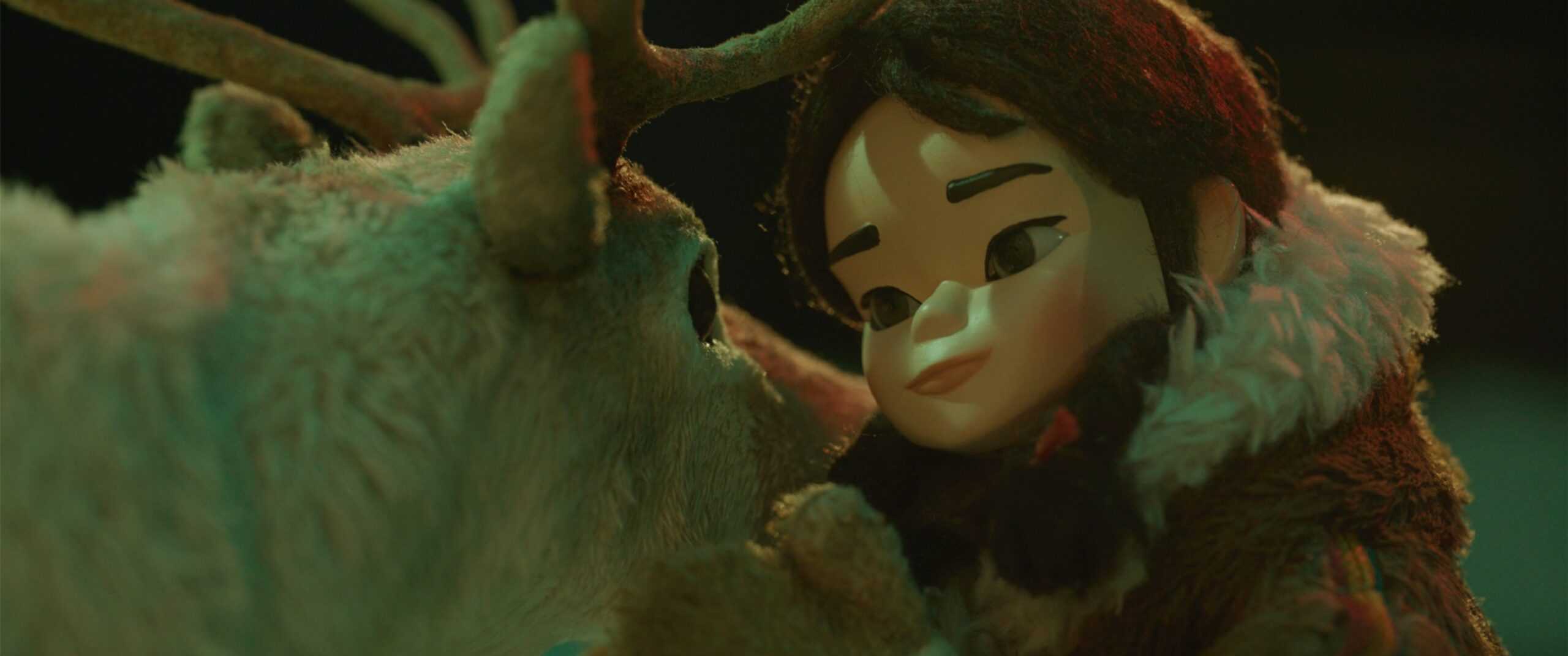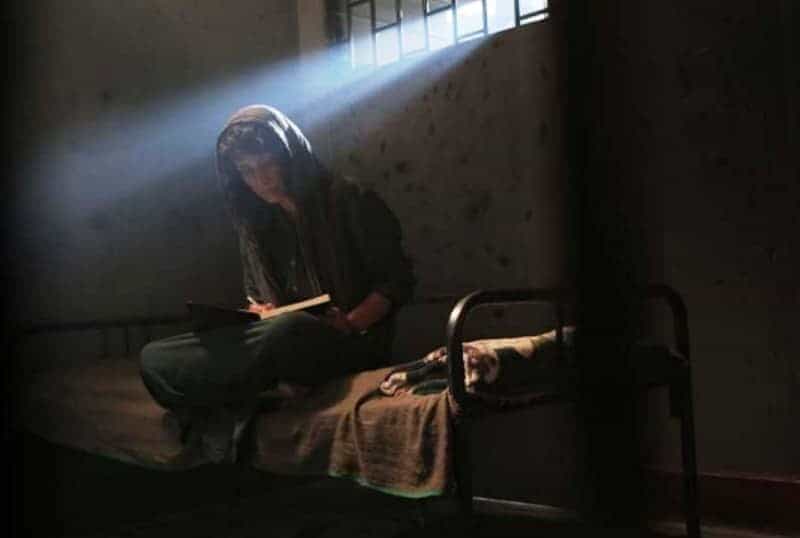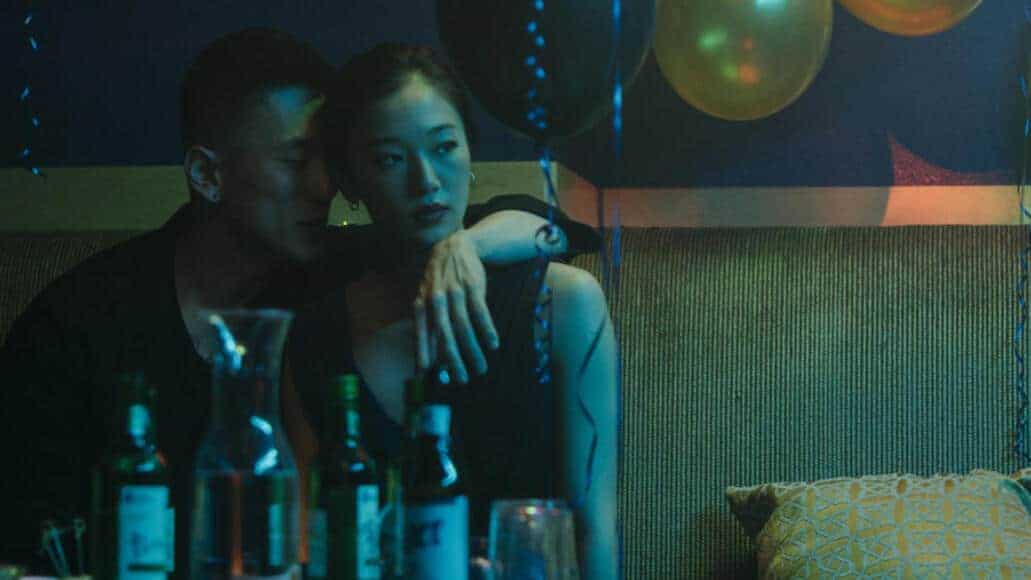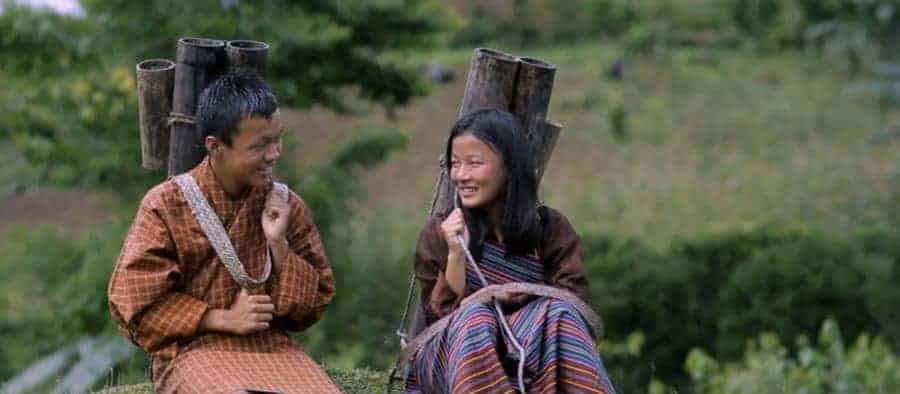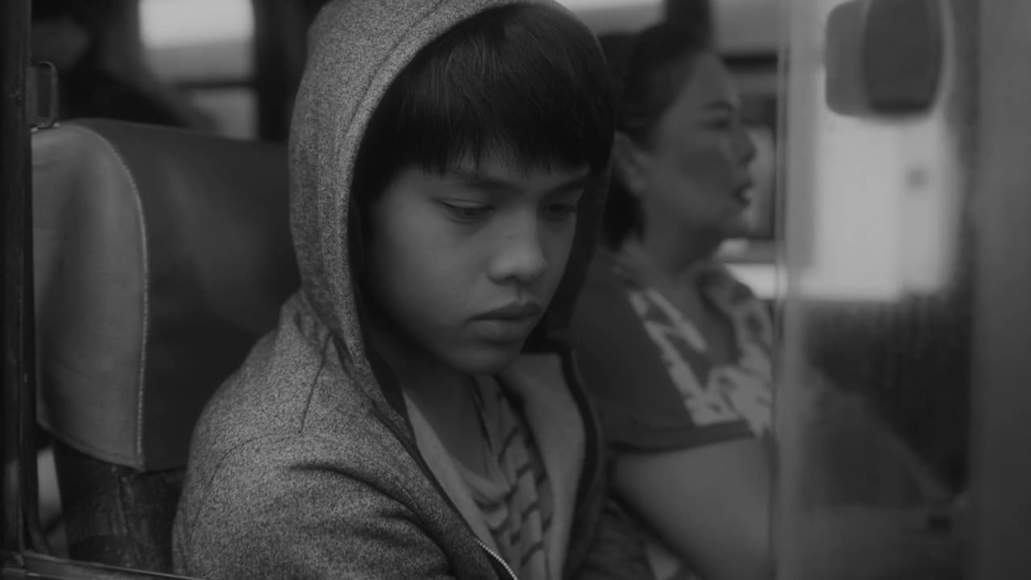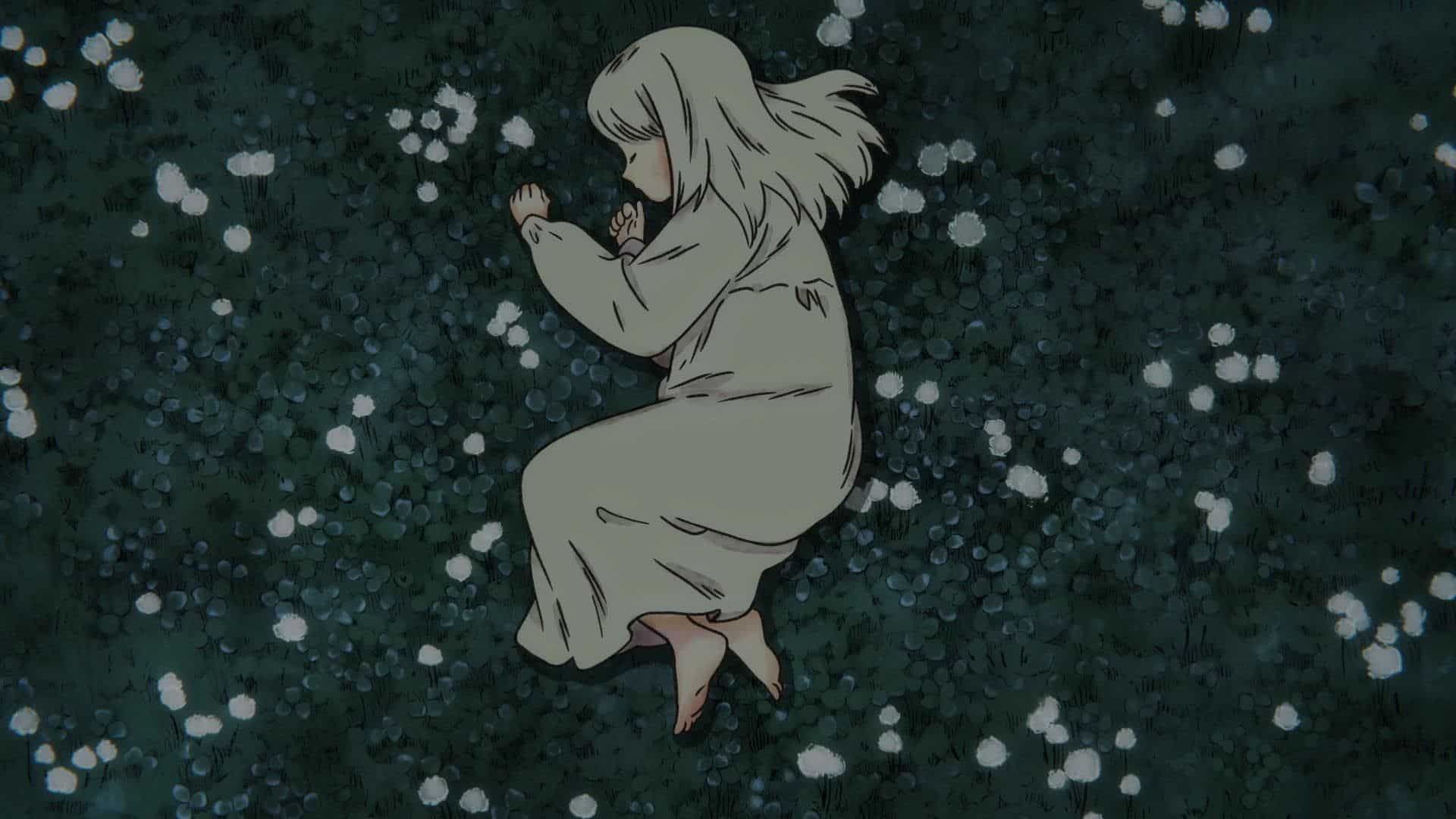South Korean mainstream cinema is best known worldwide for its strong thrillers. The country's indies, on the other hand, are appreciated for their humanist dramas. For her debut feature “Greenhouse”, Lee Sol-hui attempts a heady mix of the two genres.
Back Home is screening at New York Asian Film Festival
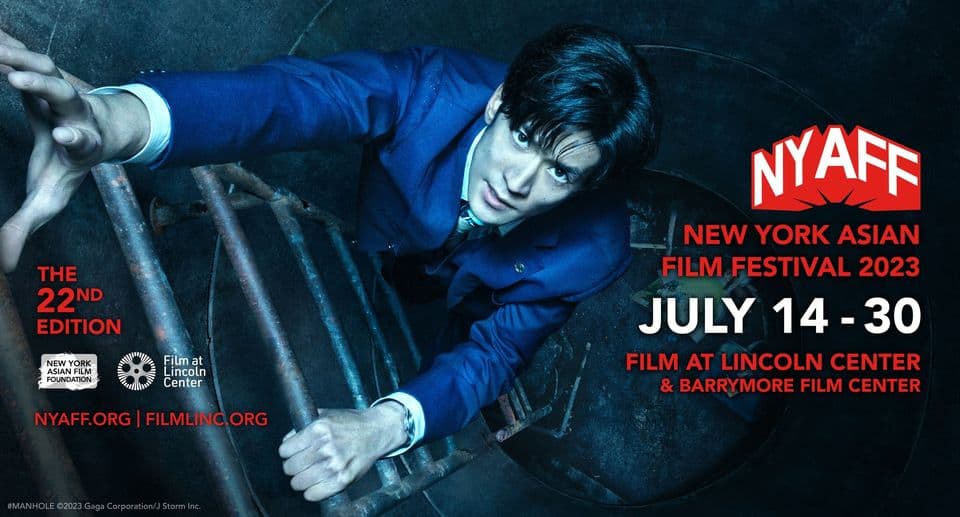
Moon-jung is an unassuming woman who is killing time until the day her juvenile son, currently detained for an unknown crime, comes back home. She lives in a makeshift home inside a greenhouse but dreams of having a decent rented place in time for her son to return. To facilitate this, she works as a caregiver for an elderly couple, with the woman, who suffers from paranoid bouts, claiming Moon-jung wants to kill her and the elderly gentleman, who is going blind and losing his memory slowly to Alzheimer's, being a kind and friendly employer to Moon-jung. Prone to hitting herself in penance, she joins a support group for self-harming people, just because she cannot afford therapy, where she meets the clingy Soon-nam, who she unwillingly befriends. However, when a mishap occurs, her life soon begins to spiral well out of control.
Serving as both writer and director, and also editor for that matter, Lee Sol-hui begins her debut in a somber tone very reminiscent of indie features as we follow Moon-jung in her daily routine, and are introduced to her meagre living conditions. This part of the narrative emphasizes on just how meek Moon-jung is, taking the accusations of her female patient and even being unable to stop a couple fornicating right in front of her greenhouse's front door. Lee writes her characters well, particularly the elderly Tae-kang, Moon-jung's male patient. In fact, this section benefits a great deal thanks to the excellent performance from the veteran actor Yang Jae-sung, who brings such depth to the character, kind and considerate towards Moon-jung and even confident and independent at that age with his health conditions, but the self-doubt he brings forth in the latter half is wonderful.
For the second half though, Lee shifts gears, and what was until then a drama swiftly becomes a thriller after the aforementioned mishap. The transition between the two, in particularly, is well handled, flowing smoothly from one to the other because it builds to it gradually. This segment borders on the fantastical at times, as Moon-jung gets increasingly fraught but Lee just about manages to make it work and keep the audience wholly invested. These fantastical elements also serve a dual purpose in making the feature darkly comical, a treatment which works to its overall appeal. Somewhere in all of this, in a theme that runs throughout the narrative, Lee explores disability and particularly living long with it, an aspect that is particularly well done through Tae-kang's storyline in the latter half.
If Lee writes it well, it is Kim Seo-hyung's top-tier performance that elevates the feature. The timidness in her act early on helps in making some of the otherwise odd decisions the character takes very believable. The smile that slowly creeps up on her face when someone pays her a small compliment is very endearing, but its the internal conflict on her face and in her voice when she has the first conversation with Tae-kang after the mishap that is probably her best work in this production. Moon-jung is a complex character, and Kim puts forth her best foot for it. Ahn So-yo too deserves mention for her part as Soon-nam, the almost bipolar new friend Moon-young makes, whose presence only further complicates things for Moon-young.
The title of this release may be “Greenhouse”, but there is nothing bright or lively about Hyung Bow's cinematography here, and purposely so. He keeps a dull and drab look for the most part, with some scenes, particularly those involving the titular greenhouse, reminding wittingly or unwittingly of some similar moments in Lee Chang-dong's “Burning”. This is true also of the eventual fate of the greenhouse in the narrative, which seems a clear nod to the South Korean auteur's 2018 masterwork. Music is very economically used, but heightens the tense moments quite effectively.
It may not be an immaculate work, but “Greenhouse” certainly shows promise from Lee Sol-hui, both as a writer and, as her treatment of the material and the terrific performances are both testament, as a director too. Hers is a name to look out for.


